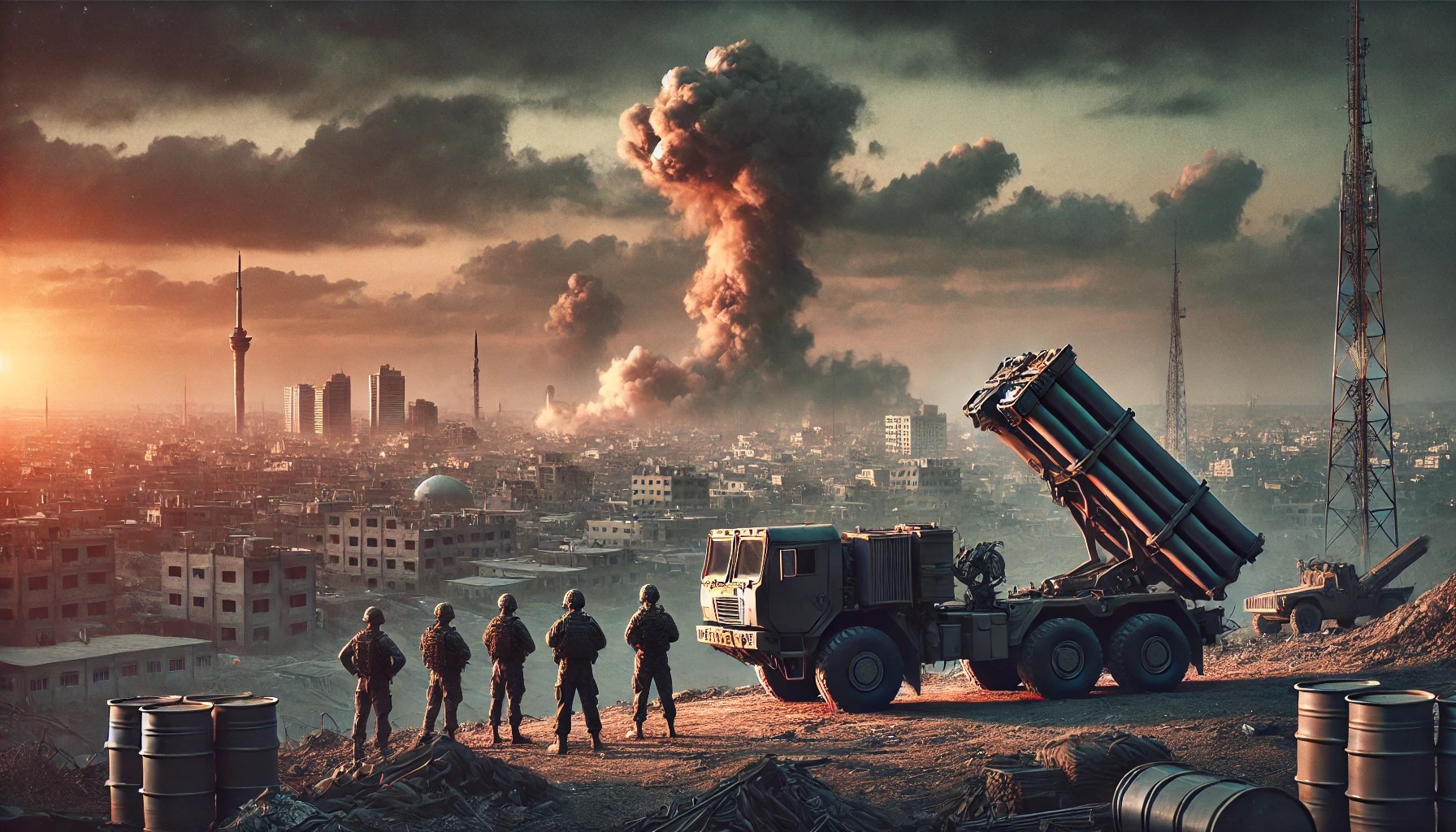Israeli Prime Minister Benjamin Netanyahu vowed on Tuesday that Iran would “pay” for its missile attacks against Israel, prompting warnings from Tehran of "vast destruction" if retaliated against. This escalation has heightened concerns of a broader conflict in the Middle East.
The U.S. expressed full support for its ally Israel, while Iran's armed forces warned that any intervention by Israel’s allies would trigger an attack on their “bases and interests” in the region. Oil prices surged by 5% amid growing concerns of a wider conflict. The U.N. Security Council has scheduled a meeting on the Middle East for Wednesday.
Netanyahu stated, “Iran made a big mistake tonight – and it will pay for it,” following a security meeting. Iran’s Revolutionary Guard Corps said the assault was in response to Israel’s targeting of militant leaders and actions against Hezbollah in Lebanon and Gaza.
Concerns about a larger conflict have grown as Israel intensified its operations in Lebanon over the past two weeks, including the start of a ground campaign on Monday. On Tuesday, Iran launched more than 180 ballistic missiles at Israel, prompting alarms across the country, with explosions heard in Jerusalem and the Jordan River Valley. While Israeli air defenses intercepted most of the missiles, some struck central and southern Israel, damaging buildings but causing no injuries, according to officials.
The U.S. Navy deployed interceptors against the Iranian missiles targeting Israel, and President Joe Biden described the attack as “ineffective,” affirming full U.S. support for Israel. Israel’s U.N. Ambassador Danny Danon warned, “Iran will soon feel the consequences of their actions.”
Iran’s armed forces warned that any Israeli response would face "vast destruction" and threatened the regional assets of any Israeli ally. Iran claimed its operation targeted Israeli military facilities and urged U.N. intervention, while international leaders, including U.N. Secretary-General Antonio Guterres and EU foreign policy chief Josep Borrell, called for a ceasefire.
The conflict marks an escalation in a volatile region, with fears of an extended ground campaign involving Israel and Hezbollah, Iran’s most potent proxy force in the Middle East.



 Asian Stocks Slip as Tech Rout Deepens, Japan Steadies Ahead of Election
Asian Stocks Slip as Tech Rout Deepens, Japan Steadies Ahead of Election  U.S.-India Trade Framework Signals Major Shift in Tariffs, Energy, and Supply Chains
U.S.-India Trade Framework Signals Major Shift in Tariffs, Energy, and Supply Chains  Trump Lifts 25% Tariff on Indian Goods in Strategic U.S.–India Trade and Energy Deal
Trump Lifts 25% Tariff on Indian Goods in Strategic U.S.–India Trade and Energy Deal  Oil Prices Slip as U.S.–Iran Talks Ease Supply Disruption Fears
Oil Prices Slip as U.S.–Iran Talks Ease Supply Disruption Fears  Gold and Silver Prices Slide as Dollar Strength and Easing Tensions Weigh on Metals
Gold and Silver Prices Slide as Dollar Strength and Easing Tensions Weigh on Metals  Thailand Inflation Remains Negative for 10th Straight Month in January
Thailand Inflation Remains Negative for 10th Straight Month in January  Asian Markets Slip as AI Spending Fears Shake Tech, Wall Street Futures Rebound
Asian Markets Slip as AI Spending Fears Shake Tech, Wall Street Futures Rebound  Global Markets Slide as AI, Crypto, and Precious Metals Face Heightened Volatility
Global Markets Slide as AI, Crypto, and Precious Metals Face Heightened Volatility  Fed Governor Lisa Cook Warns Inflation Risks Remain as Rates Stay Steady
Fed Governor Lisa Cook Warns Inflation Risks Remain as Rates Stay Steady  Japan Economy Poised for Q4 2025 Growth as Investment and Consumption Hold Firm
Japan Economy Poised for Q4 2025 Growth as Investment and Consumption Hold Firm  Dollar Steadies Ahead of ECB and BoE Decisions as Markets Turn Risk-Off
Dollar Steadies Ahead of ECB and BoE Decisions as Markets Turn Risk-Off  Trump Endorses Japan’s Sanae Takaichi Ahead of Crucial Election Amid Market and China Tensions
Trump Endorses Japan’s Sanae Takaichi Ahead of Crucial Election Amid Market and China Tensions  RBI Holds Repo Rate at 5.25% as India’s Growth Outlook Strengthens After U.S. Trade Deal
RBI Holds Repo Rate at 5.25% as India’s Growth Outlook Strengthens After U.S. Trade Deal  Bank of Japan Signals Readiness for Near-Term Rate Hike as Inflation Nears Target
Bank of Japan Signals Readiness for Near-Term Rate Hike as Inflation Nears Target  Silver Prices Plunge in Asian Trade as Dollar Strength Triggers Fresh Precious Metals Sell-Off
Silver Prices Plunge in Asian Trade as Dollar Strength Triggers Fresh Precious Metals Sell-Off  South Korea’s Weak Won Struggles as Retail Investors Pour Money Into U.S. Stocks
South Korea’s Weak Won Struggles as Retail Investors Pour Money Into U.S. Stocks  Singapore Budget 2026 Set for Fiscal Prudence as Growth Remains Resilient
Singapore Budget 2026 Set for Fiscal Prudence as Growth Remains Resilient 





























